


Millions of people struggle with poor sleep. In the United States alone, 1 in 3 adults reported not getting enough sleep. In a bid to get quality sleep, some have turned to using sleep apps or supplements. Most recently, there’s been a growing interest in using CBD for sleep.
The question is: does CBD really work in helping you sleep better? Given its connection to cannabis, a cannabinoid drug, it’s no surprise that it raises some skepticism. Keep reading to find out all that you need to know about CBD for sleep.

CBD, or cannabidiol, is an active ingredient that is found in cannabis (marijuana) [1]. It is one of several compounds that are found in a single cannabis plant [2].
Unlike THC (tetrahydrocannabinol), the psychoactive component of cannabis, pure CBD does not produce a “high” and it is thought to be safe and legal for use [3].
The endocannabinoid system (ECS) comprises of internal cannabinoids, receptors and enzymes to regulate sleep patterns. It is involved in the initiation and maintenance of sleep [4].
CBD interacts with the ECS primarily through two types of receptors: CB1 and CB2. This receptors help to regulate processes such as mood, stress response, and pain perception— factors that can affect sleep.
Based on early research, it is shown that using different dosage of CBD can have differential effects on sleep. At a low dose, CBD can have a stimulating effect while at a high dose, it can have a sedating effect and help you to fall asleep faster [5], [6].
In a study that involved individuals with insomnia symptoms, it was found that using a high dose of CBD at 160mg/day, it had increased total sleep time and reduced the frequency of nighttime arousal.
Based on these results, it suggest that there may be potential therapeutic benefits of using CBD to treat sleep disorders or sleep problems.
Derived from hemp, a cannabis sativa plant, CBD can come in three different types.
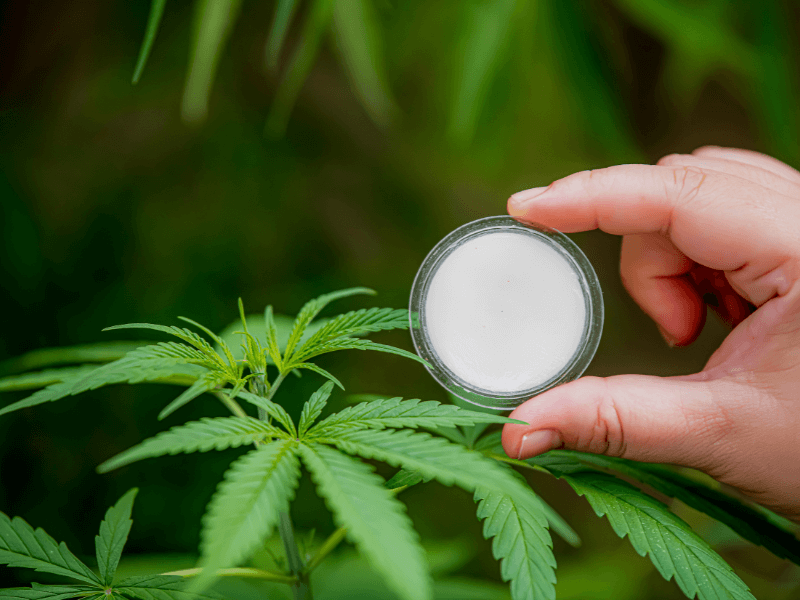
Full-spectrum CBD refers to products that are made with CBD and other active compounds such as terpenes and up to 0.3% of delta-9-tetrahydrocannabinol (THC)— known for its psychoactive effects.
Some potential benefits of using full-spectrum CBD is that it can help with pain relief, improve sleep quality, reduce inflammation, anxiety and depression symptoms and help to improve health conditions [7].
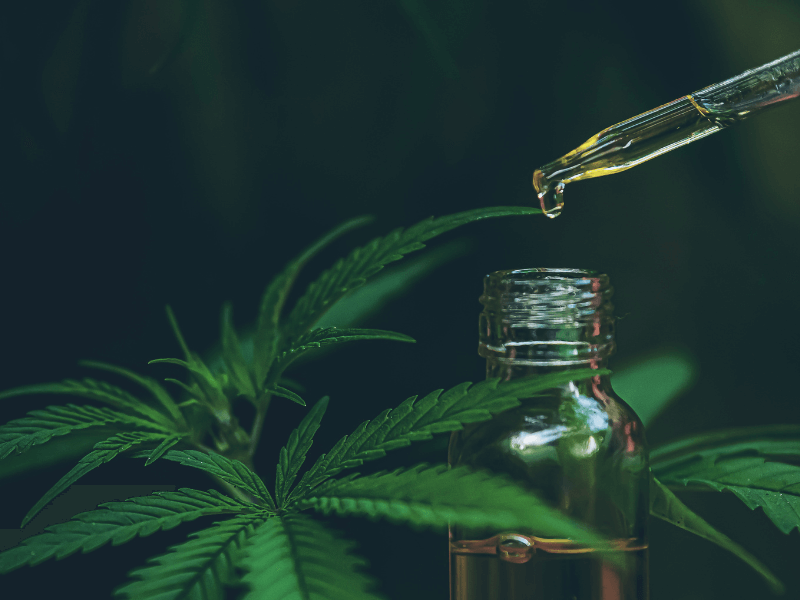
Broad-spectrum CBD is similar to full-spectrum CBD except that it undergoes an extraction process to remove all traces of THC but still maintaining the natural compounds found in hemp plants.
The potential benefits of using broad-spectrum CBD includes social anxiety relief, improves sleep and reduces chronic pain [8].
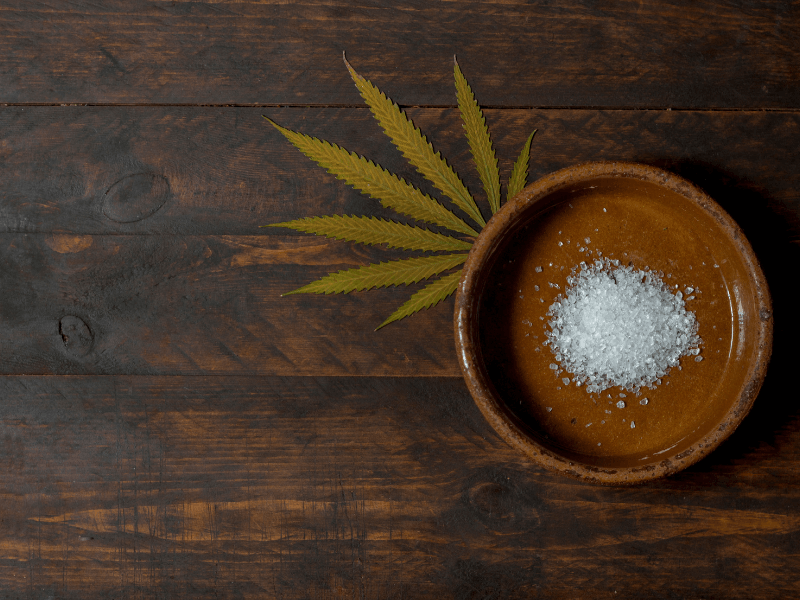
CBD isolate is also known as pure CBD refers to products that do not contain any THC or active compounds that are found in hemp plants. In its purified state, it does not induce any psychoactive effect or “high” like the ones with THC.
Pure CBD may share some similar potential benefits to full-spectrum and broad-spectrum CBD like being an effective sleep aid.
It is also said to help with anxiety related disorders and post-traumatic stress disorder (PTSD). However, the real efficacy still remains unknown [9].
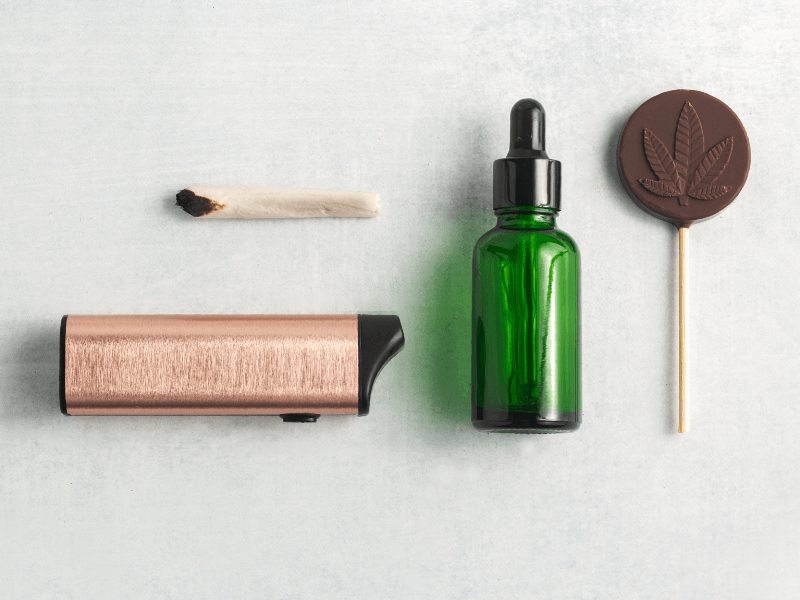
There are a few common ways to consume CBD, which are:
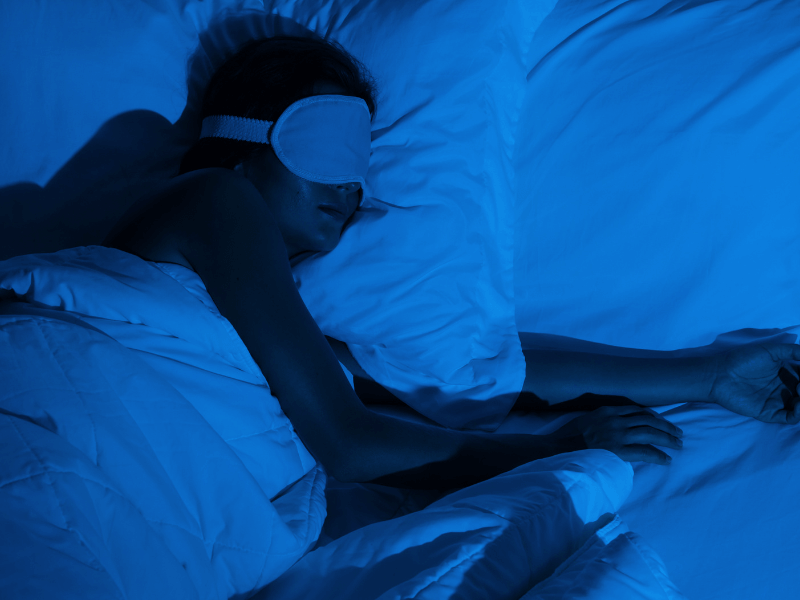
Many studies suggest that CBD has potential health benefits like helping to improve sleep quality, and treat insomnia and other sleep disorders, anxiety and pain— all of which can cause sleep disruptions [10].
Here’s how it helps with these conditions:
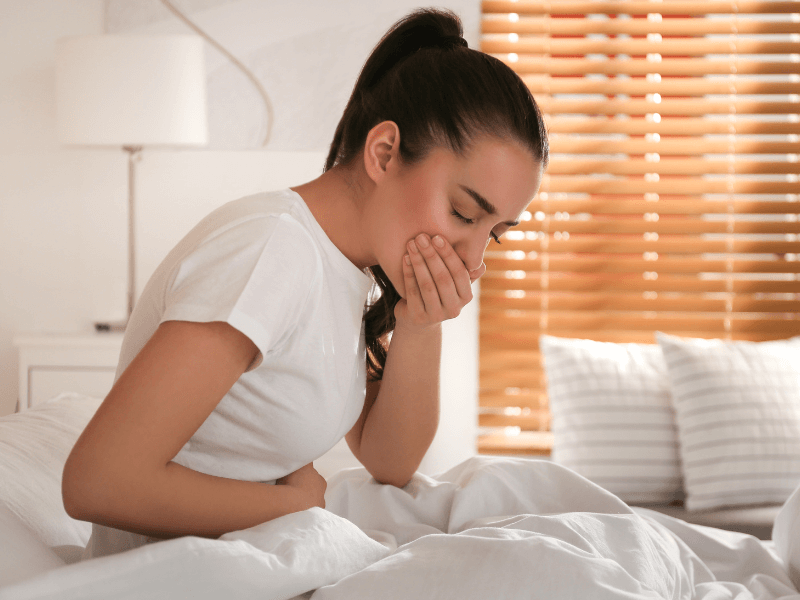
There are many concerns when it comes to the use of CBD for sleep. Mainly regarding its safety and effectiveness due to limited data and its association to cannabis, a drug, largely illegal for recreational use in a vast majority of countries.
Some of the risks and side effects of using CBD include [11]:
Additionally, not everyone is suited to use CBD to deal with sleep issues. Certain individuals should either avoid it or exercise caution to prevent adverse effects.
You should not consume CBD if you are:
When it comes to natural sleep aids, some of the well-known ones are melatonin, valerian root, magnesium, and chamomile. CBD stands out among natural sleep remedies as it may address issues related to sleep disturbances, anxiety, stress and pain.
It helps mostly for people with chronic sleep problems compared to other natural remedies that are part of a bedtime routine or to treat specific sleep issues [16].
If you prefer to skip supplements, there are plenty of natural ways to improve your sleep. Here are 4 tips to help you sleep better naturally.
Good sleep hygiene means adopting habits that will help with getting restful sleep. This means setting a regular sleep schedule, limiting naps during the day, and avoiding stimulating activities (e.g. exercise) close to bedtime.
By maintaining this routine, it helps your body to associate when it is time to wind down and go to bed.
Ensure that you have a comfortable sleep environment to sleep in at night. Some things that you can do to make it more cozy is to keep the room temperature cool, and keep it dark and quiet.
You should also have a a good, soft mattress and pillows to sleep on for maximum comfort. To further minimize external disturbances such as morning sunlight, street or traffic noises, consider using blackout curtains or white noise machines.
As much as possible, try to avoid eating heavy meals or snacks before bedtime as this could lead to sleep disruptions. When you eat just before you are about to sleep, your food will likely go undigested.
This can cause indigestion, acid reflux or discomfort that may wake you up abruptly in the middle of the night. Try to finish eating at least 2-3 hours before bedtime. If you are feeling extremely hungry and must eat, opt for a light snack instead.
Engaging in calming activities before bed can be rather therapeutic. It calms the mind down and relaxes the body, signaling that it is time to relax.
Listening to sleep sounds such as white noise or pink noise can help to drown out noises and bring you to a state of ease. Meditation involves being present and focusing on mind, body and breathing awareness. Its calming effects helps to decrease anxiety and ruminative thoughts, aiding better sleep.
While early research suggests that CBD may help with various sleep-related issues, such as insomnia, anxiety, and chronic pain, its effectiveness can vary from person to person.
If you’re looking for a natural way to monitor and enhance your sleep quality, download the ShutEye® app today. ShutEye® is a patented sleep-tracking app that provides personalized insights, sleep sounds, guided meditation and a smart alarm clock to help you achieve better sleep one step at a time.
Abraham, A. and Hirsch, M.L. (2023) How to compare melatonin, CBD and other popular sleep supplements [online]. Available at: https://www.washingtonpost.com/wellness/2023/07/31/sleep-cbd-melatonin-supplements/
Babson, K. A., Sottile, J., & Morabito, D. (2017). Cannabis, Cannabinoids, and Sleep: a Review of the Literature. Current Psychiatry Reports, 19(4). Available at: https://doi.org/10.1007/s11920-017-0775-9
Bonaccorso, S., Ricciardi, A., Zangani, C., Chiappini, S., & Schifano, F. (2019). Cannabidiol (CBD) use in psychiatric disorders: A systematic review. NeuroToxicology, 74, 282-298. Available at: https://doi.org/10.1016/j.neuro.2019.08.002
Bykov, K. (2021) CBD and other medications: Proceed with caution [online]. Available at: https://www.health.harvard.edu/blog/cbd-and-other-medications-proceed-with-caution-2021011121743
Carlini, E. A., & Cunha, J. M. (1981). Hypnotic and antiepileptic effects of cannabidiol. Journal of clinical pharmacology, 21(S1), 417S–427S. Available at: https://doi.org/10.1002/j.1552-4604.1981.tb02622.x
C., J., F., J., R., Á., A., M., E., C., M., A., J., V., D., C., I., F., & K., A. (2023). Sleep, Glial Function, and the Endocannabinoid System: Implications for Neuroinflammation and Sleep Disorders. International Journal of Molecular Sciences, 25(6), 3160. Available at: https://doi.org/10.3390/ijms25063160
FDA (2019) What You Should Know About Using Cannabis, Including CBD, When Pregnant or Breastfeeding [online]. Available at: https://www.fda.gov/consumers/consumer-updates/what-you-should-know-about-using-cannabis-including-cbd-when-pregnant-or-breastfeeding
Grinspoon, P. (2024) Cannabidiol (CBD): What we know and what we don't [online]. Available at: https://www.health.harvard.edu/blog/cannabidiol-cbd-what-we-know-and-what-we-dont-2018082414476
Jacobs, S. (2023) CBD Use-Related Adverse Events Twice As Common in Patients With Epilepsy [online]. Available at: https://www.neurologyadvisor.com/news/cbd-use-related-adverse-events-common-patients-epilepsy/
Jesner, L. (2023) CBD Isolate: What It Is, Benefits And Risks [online]. Available at: https://www.forbes.com/health/cbd/cbd-isolate/
Jesner, L. (2023) What Is Broad-Spectrum CBD? Benefits, Risks And More [online]. Available at: https://www.forbes.com/health/cbd/broad-spectrum-cbd/
Jesner, L. (2023) Full-Spectrum CBD: What It Is, Benefits And Risks [online]. Available at: https://www.forbes.com/health/cbd/full-spectrum-cbd/
Souza, J. D. R., Pacheco, J. C., Rossi, G. N., de-Paulo, B. O., Zuardi, A. W., Guimarães, F. S., Hallak, J. E. C., Crippa, J. A., & Dos Santos, R. G. (2022). Adverse Effects of Oral Cannabidiol: An Updated Systematic Review of Randomized Controlled Trials (2020-2022). Pharmaceutics, 14(12), 2598. Available at: https://doi.org/10.3390/pharmaceutics14122598
WHO (2017) Drugs (psychoactive): Cannabidiol (compound of cannabis) [online]. Available at: https://www.who.int/news-room/questions-and-answers/item/cannabidiol-(compound-of-cannabis)